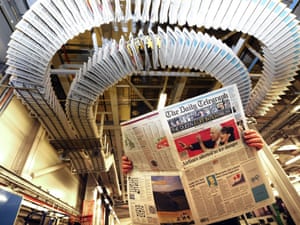http://www.telegraph.co.uk/finance/personalfinance/bank-accounts/12005149/Pins-obsolete-within-five-years-and-pay-with-mobile-or-fingerprints-instead.html
The article is about how pin codes could become obsolete in the near future in favour of prints and mobile phones instead. Banks argue that it is safer than pins and are offering discounts to people who use the new technology. It could happen as soon as 2020 which when looked at is not far at all. It states that it is safer than people accidentally getting their accounts defrauded by criminals getting their pins.
- So-called "personal identification numbers" were invented in the 1960s
- But last year the British banking industry lost almost £480m in card fraud - more than any year in the past decade except for 2008
- More than 96pc of transactions are used via chipped credit or debit cards and prevent fraudsters from spending in shops using just a copycat card.
- The Pin will be "dead" by 2020 as a result because customers will lose faith in its ability to protect their money
- Pins are already redundant for "contactless" spending in shops and at self-service ticket machines. Contactless spending, done via Apple Pay or a card, has increased by 200pc since the limit was increased from £20 to £30
In my opinion this is a good advancement in security as it is much safer than the four digit pins which people can easily see when people are using the cash point. This will be a good thing for people to use as they will have a much lower chance of being defrauded for their money, but the systems could have flaws which they will need to ensure are not there before it is released as technical mistakes could cost people all their money. So as long as it is done right it should be a good thing to do.
The decline of print doesn't mean the end of journalism.

The article is about how new and digital media like the internet has cause a massive decline in print news and how everyone can now become a journalist. It tells of how the new websites that provide news like Buzzfeed are killing off well established news sources like The Times. It states that advertising in print has seen a massive decline since the arrival of the internet.
- the Times had lost $74m on the quarter and 40% of its advertising revenue to Craiglist.
- Between 2005 and 2013, print advertising fell 50%
- Newspaper titans like the Times enjoyed a privileged position for decades and then the internet arrived
- Major outlets have slimmed down to a shadow of their former selves (Los Angeles Times) or disappeared altogether (Baltimore Examiner, Tucson Citizen, Kentucky Post, to name a few)
- The New York Times, Financial Times, and Washington Post conditioned their readers to expect free content, and thus experienced the inevitable grumbling and resistance when the day came that they too had to put a pay wall up online
In my opinion this will just continue to happen because big corporations have now allowed their audience to get their news for free, and now they have to continue doing so to keep their readers. Even Rupert Murdoch who was a strong believer in paying for Journalism has taken down his paywall on The Sun newspaper website. This will continue to happen until print is out of business for good.
No comments:
Post a Comment